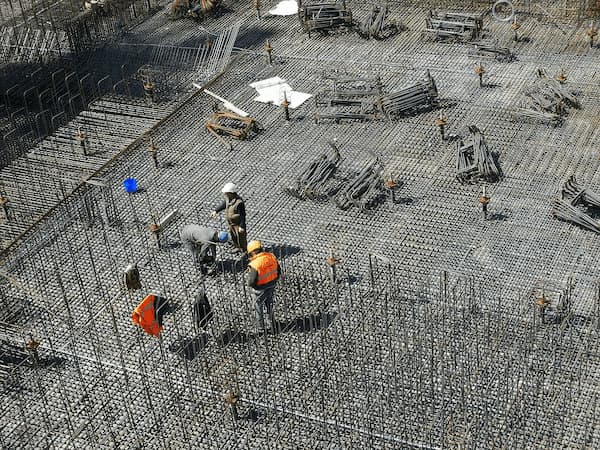
Every construction project is unique, so the idea of consistent quality control and quality management in construction seems at odds with the reality of the industry. And to a certain extent this is true – in fact, it would be a disaster if the exact same quality control procedures were used on every project. However, though different projects naturally have different requirements and different criteria that must be met, one thing does indeed remain consistent – and that is the definition of “quality” itself.
Consistent quality control in construction simply means that the project or project components must meet the requirements of the client or the owner. It means that all completed work conforms to the desired specifications and quality assurance is also performed.
In other words, though particular project requirements and specifications differ from project to project, the overarching goal remains the same – meeting them on time and within budget.
When we understand this simple fact, we realize that consistent quality control in construction is not only possible, but also achievable every single time with the right quality services attached to a great construction process. And the good news is that there is a way to develop a consistent quality control process that easily adapts to the unique aspects of individual projects.
Assess Your Current Quality Control Processes
The first step is to recognize your existing quality control practices that are carried out consistently among your projects. Typical examples of basic project quality practices might include:
- We inspect critical building products and materials received on the jobsite
- We inspect the completion of work at important milestones
- We have preconstruction meetings to discuss quality expectations
An excellent way to build out your list is to use a self-assessment tool to unearth what quality control practices you are consistently using across your different project phases – you’ll be amazed how much you already do in terms of quality work without realizing it.
Indeed, even though you may not as yet have a formalized quality control program that serves to help you achieve consistent processes from project to project, you will nonetheless be repeatedly deploying methods for controlling things like materials, personnel, subcontractors, work procedures and meet the quality requirements.
All you have to do at this stage is to identify what these are and add them to your list of current quality control practices. These are your essential operating policies that will form the basis of the company quality control program.
Consistency of Current Quality Processes
The next step is to ensure these baseline quality practices are implemented consistently according to your project requirements – that is, 100% of the time across all new projects.
Since you have documented your essential quality control operating policies, the task, essentially, is to get them baked into each new project-specific quality control plan.
The method is simple. Taking our three basic quality practices above as an example, on your next new project, you ask the project manager or the person in charge in the project management team how he/she will implement them and to write the steps down as a project quality plan.
So, in our example, the plan would identify:
- Which products and materials will receive inspections
- What milestones will be inspected and by whom
- Who will attend the preconstruction meeting to discuss quality expectations
Importantly, you are not telling the project manager how to do these things, or even what is critical or important. The only thing that matters at this stage is that the project manager decides what he/she is going to do to specifically address each point, and that these actions are outlined in a written project quality control plan.
Consistent Better-Quality Processes
The next stage is to evaluate the plan – and you should not do this alone. Instead, it is a best practice to organize a peer review team that evaluates project quality plans to conduct the evaluation and achieve total quality management.
The team will identify any areas of the quality control plan that are unclear or where something is missing, make observations and provide suggestions for improvement. The review team will then submit this feedback to the project team to incorporate into the project quality plan.
Your job as feedback is submitted is to ask the review team if each item should be incorporated into the overall company quality process. If the answer is yes, then you go back to your list of essential operating policies and add the item to the list.
In this way, the process of peer review functions as a method for achieving consistent quality control practices across more and more of your operations. This not only provides stability and control to the quality control process, but ensures that it is always evolving and improving.
Consistent Best Quality Practices
By now, you have a robust structure in place to ensure consistent quality control across your construction projects – and a method to continuously improve and refine your program with each new project undertaken.
At this stage, you can now start to look outside your company for new ideas and opportunities to implement best quality practices into your processes. There are always new methods, new thinking, and new technologies to consider – some of which will be in use at other construction companies, others in completely different industries altogether.
Understanding what best practices are out there for your construction company will bring new ideas to the table as to what should be part of your company’s quality processes. You are only able to start thinking about these things now because you have the foundation in place to integrate them into your company without throwing your core quality control program off track.
A good place to start is with a quality maturity self-assessment. At FTQ360, we have identified four stages of maturity – Basic, Professional, Advanced and Expert. We have also developed a simple but powerful Maturity Assessment tool that will pin-point exactly where you are on the four-level scale and establish how sophisticated your construction quality control program is.
The Assessment scores your performance across ten areas that impact your quality control program the most:
- Organization
- Management
- Strategy
- Accountability
- Planning
- Processes
- Controls
- Measurement
- Improvement
- Technology
Taking this simple Assessment will help you recognize what your company already has in place, and the steps you’ll need to take to improve your quality control process.
Key Factors in Maintaining Construction Quality
Maintaining high construction quality requires a combination of planning, process, people, and technology. Below are the core factors that contribute to consistent and reliable outcomes on construction projects:
-
Clear Project Specifications
-
Well-defined requirements reduce ambiguity and set measurable quality standards.
-
-
Trained and Competent Workforce
-
Skilled workers and supervisors are essential for executing quality tasks consistently.
-
-
Standardized Processes and Checklists
-
Ensures all teams follow the same inspection and quality protocols.
-
-
Regular Inspections and Audits
-
Ongoing quality checks help identify issues early and prevent rework.
-
-
Effective Communication Across Stakeholders
-
Clear collaboration between owners, contractors, and inspectors reduces errors and misinterpretations.
-
-
Use of Quality Management Technology
-
Digital tools streamline documentation, reporting, and issue tracking.
-
-
Root Cause Analysis and Continuous Improvement
-
Tracking recurring issues helps refine processes over time and drive systemic improvements.
-
Achieve Consistent Quality Control in Construction with FTQ360
Providing consistent quality control in construction is possible. We know it is, because we have helped many construction companies develop and implement consistent quality processes that can be adapted to any project for improved construction quality and streamlining quality control procedures.
The first and last steps use a quality maturity self-assessment tool. This is a great place to start, for it allows you to establish exactly where your quality program is on a scale from Basic to Expert. More importantly, though, at FTQ360, we can help you identify exactly what you need to do to reach the next level and set you on the road to developing a quality program that will enable you to achieve consistent quality control in construction across all your projects.
Take your 5 Minute Quality Maturity Assessment today – and if you have any questions about managing quality, please feel free to get in touch. At FTQ360, we’re serious about quality. If you are too, we’d love to talk.
What are the main challenges in construction quality control?
Construction quality control faces several persistent challenges, including:
-
Lack of standardized processes: Inconsistent procedures across teams or job sites can lead to variable quality outcomes.
-
Human error: Manual inspections and documentation increase the risk of missed issues or incorrect reporting.
-
Communication gaps: Poor coordination between stakeholders (e.g., contractors, inspectors, project managers) can result in rework or non-compliance.
-
Inadequate documentation: Without real-time records, it's difficult to verify quality standards were met during each construction phase.
-
Reactive mindset: Many firms only address quality issues after defects are discovered, rather than proactively preventing them.
Addressing these challenges requires a shift from reactive to proactive quality control systems.
How can technology help ensure consistent construction quality?
Technology plays a critical role in achieving consistent construction quality control by enabling:
-
Standardized inspection workflows: Digital checklists ensure that all quality checks follow the same process across projects and teams.
-
Real-time data capture and reporting: Mobile apps and cloud-based platforms allow field teams to document inspections instantly, improving traceability and accountability.
-
Automated issue tracking: Defects can be flagged, assigned, and resolved within a centralized system, reducing resolution times.
-
Analytics and trend detection: Quality management software can highlight recurring issues or underperforming teams, helping you prioritize corrective action.
-
Compliance and audit readiness: All documentation is stored in one place, ensuring you're always prepared for audits or regulatory reviews.
By integrating technology into your QA/QC processes, you reduce errors, improve consistency, and ultimately deliver higher-quality outcomes on every project.
![[FREE EBOOK] Your Complete Guide to Achieving First Time Quality](https://no-cache.hubspot.com/cta/default/3353989/8c80b65c-b362-4e46-af1b-0ecf2d1581db.png)

